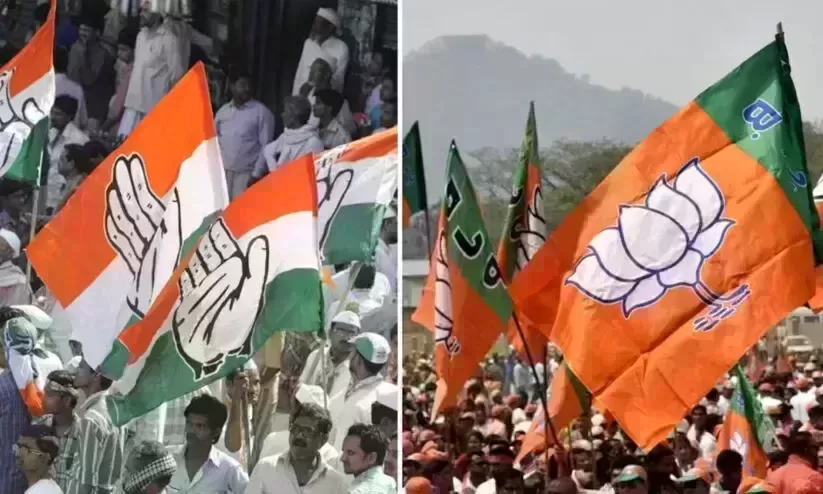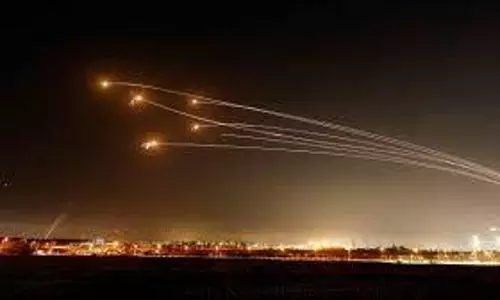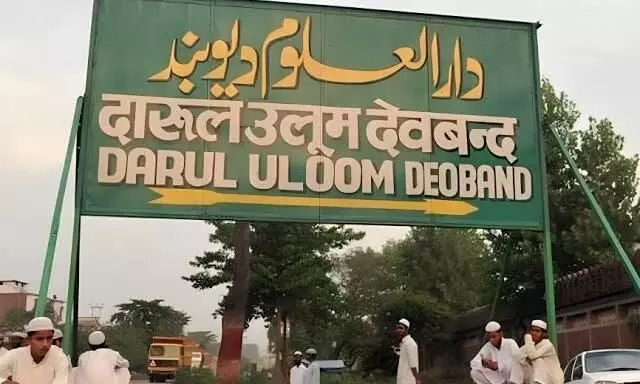
Was that a fatwa on Gazwa-e-Hind by Deoband which is now being probed?
text_fieldsIndia's largest Islamic seminary, Darul Uloom Deoband in Uttar Pradesh, has denied allegations made by the National Commission for Protection of Child Rights (NCPCR) regarding the issuance of a fatwa promoting hatred.
The NCPCR, in a letter addressed to the Saharanpur district magistrate, raised concerns over what it described as an "objectionable fatwa" allegedly published on the institute's website.
According to Priyank Kanoongo, the chairperson of the commission, the fatwa in question purportedly discusses the concept of Gazwa-e-Hind, referring to a predicted holy battle by Muslims in the Indian subcontinent as mentioned in a hadith attributed to Prophet Muhammad.
However, Ashraf Usmani, spokesperson for Darul Uloom Deoband's vice chancellor Abul Qasim Nomani, refuted the claims, stating unequivocally that the content in question does not constitute a fatwa. Usmani clarified that the institute merely reproduced a hadith related to Gazwa-e-Hind in response to a user's query on its website's question and answer page.
The controversy deepened as the NCPCR accused the seminary of potentially exposing children to hatred against their own country, citing legal implications under Section 75 of the Juvenile Justice Act. The commission further invoked a Supreme Court judgment and emphasized the seriousness of offences against the state.
Despite the NCPCR's assertions, Darul Uloom Deoband maintains its stance, asserting that it has not violated any laws by publishing the hadith. Usmani emphasized that the institute neither promotes nor encourages any particular interpretation of the prophetic tradition mentioned in the hadith.
Mehdi Hasan Qasmi, a social activist and former student of Darul Uloom Deoband, criticized the NCPCR's approach, alleging that the commission has been targeting the institute with baseless controversies. Qasmi dismissed the notion of Gazwa-e-Hind as a "bogey" and accused those raising concerns of attempting to defame the institution.
The controversy surrounding Gazwa-e-Hind is not new, with divergent interpretations and historical perspectives contributing to the discourse. While some Islamic scholars view it as a past event, certain militant groups in Pakistan, such as the Jaish-e-Mohammad, have invoked the concept to justify their actions against India.
In response to the NCPCR's complaint, Dinesh Chandra, the Saharanpur district magistrate, confirmed that the administration is investigating the matter and will take appropriate action in accordance with the commission's directives.
Vipin Tada, Senior Superintendent of Police in Saharanpur, assured that the police are actively investigating the alleged objectionable content and are in communication with Darul Uloom Deoband.
























